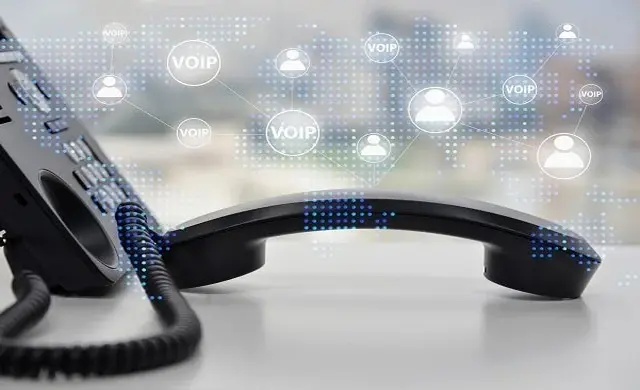
You generally need one phone line to reach your office if you run a small business from home or in your car. Things can get tricky when your company grows and needs more phones for employees throughout the country. Adding phone lines and numbers might raise administrative costs. Thankfully, private branch exchange (PBX) solutions solve this difficulty. This fancy term refers to connecting all phones in a company or location. Adding phones and modernizing your office requires PBX knowledge. Nowadays, everything is digital and online. This cutting-edge technology streamlines PBX system administration, notwithstanding its complexity. The latest PBX systems are cheaper and more functional. A PBX system can improve customer service, lower costs, and boost adaptability. Read about the main benefits of PBX virtual phone systems.
PBX phone systems’ many advantages
Communicate Within Your Organization

Even internal office calls are routed through the local phone company’s exchange, which you might only realize if you know the specifics of how your workplace’s phone system works. Calling an employee’s extension requires contacting the local telephone exchange, which may result in additional fees, before returning to the organization. A PBX Platform would allow the call to be routed internally, avoiding the requirement for any external contact. When you add a few more phones to a classic system of direct lines, the resulting complexity quickly becomes unmanageable and expensive. While you would assume that a private telephone exchange would be too expensive for a small firm, you’d be wrong. You can get all these perks without shelling out for a costly enterprise-level phone system.
Power Concentrated in One Place
The receptionist function of a PBX phone system can centralize all incoming calls to your business’s many phones under a single extension. That implies you only need to provide one phone number whenever possible (such as in ads or directories) rather than a large string of them. Without a PBX, this could be done, but only one person could be on the line at a time. A PBX phone system allows for simultaneous incoming and outgoing calls. Your team members can make outgoing calls while others are still on the line.
Robotic Process Automation
A prominent perk of a PBX phone system is that it eliminates the need for a dedicated receptionist. A PBX system is responsible for the “auto attendant” instructions you may have encountered when calling a business. When these menus are too long, callers could get frustrated. To bypass what could be a lengthy menu procedure, PBX auto attendants typically allow callers to provide an extension number.
Adaptable Call Distribution
Several extras come with PBX phone systems that you won’t find on a regular phone. While waiting for a crucial call, you could be called to an emergency meeting across the floor. If you don’t answer your phone after a certain number of rings, the PBX system can automatically transfer your calls to another number. You can boost your VoIP phone’s find-me/follow-me functionality by diverting calls to other numbers or voicemails. The ability to redirect calls allows for a series of backup routing to be set up if a crucial employee, such as a sales manager, leaves their desk. The sales rep’s call will then be transferred to another agent automatically. Using these methods, you may avoid having important customer calls go to voicemail. Calls can be routed to a group of phones, and custom messages can be played while customers wait to be helped.
Adaptive Gaining Access
Software that lets you configure each line is commonly included with PBX systems. For instance, the PBX management consoles allow you to restrict certain handsets to make internal calls. Others can be configured for local calls only, not international ones. You can even prevent specific extension numbers from being dialed internationally.
Adjustable Call Forwarding
Many useful functions are only available on PBX phone systems that are unavailable on regular phones. Suppose you’re waiting for a crucial call but suddenly get called to an emergency meeting across the hall. If you don’t pick up your phone after a certain number of rings, the PBX system can be programmed to reroute your calls to another number. A VoIP phone’s find-me/follow-me capability can be enhanced, so incoming calls are routed to other devices or voicemails.
If a crucial employee, like a sales manager, is ever away from their desk, you can set up a succession of backup routing with call forwarding. After then, the call will be transferred to another sales rep automatically. Using these features, you can avoid making essential customer calls go to voicemail. Calls can be forwarded to many phones at once, or customized hold music can be played while customers wait for assistance.
Cost Accounting

PBX telephone systems record both incoming and outgoing calls. With traditional phones, you will know how many calls your company receives once the monthly bill arrives. This reporting capability provides insight into which departments handle the most phone traffic and which extensions are busiest. Some extensions rarely get any calls, while others are always busy and have long wait times before anyone can get through.
You may maximize the return on your investment in cell phones by reviewing usage records and redistributing them accordingly. In addition to determining who is most productive and who is wasting time and money, you can observe if employees are making personal calls and how long those calls last.
Modifying Pictures for Better Viewing
Auto attendants and the other PBX functions are commonplace when customers call large corporations like utility providers, so customers are already familiar with them. Getting a PBX system means seeming on par with much larger corporations.
Even if your company consists of only you and one or two partners, your customers will feel they are dealing with a much larger corporation. Customers wary of doing business with a startup will gain faith and trust in your company.
Incorporate the Web
This capacity to interface with the Internet is the most recent development in PBX systems. VoIP, which stands for “Voice Over Internet Protocol,” is a method that can be used to route calls over the Internet. Telephones in Internet-connected offices receive calls but do not make or receive calls through traditional telephone networks.
Since no one at your business will be making phone calls, you can stop worrying about phone expenses. Just as it can handle several Internet connections from your company’s computers, your Internet router distributes calls to all VoIP phones in the facility.
If you’re concerned about the expense of setting up a PBX system, you shouldn’t be. Services that can be accessible via the World Wide Web are what people mean when they talk about “the Cloud.” In the cloud model, your only requirements are an Internet connection and a web browser.To implement this idea with a PBX system, you need a computer, an Internet router, and some Internet-enabled digital phones; you can make any necessary adjustments using an Internet browser. It is unnecessary to purchase a PBX system if you already have a router.
In conclusion, there are several advantages to having a PBX platform for growing businesses. The above are some of them.












